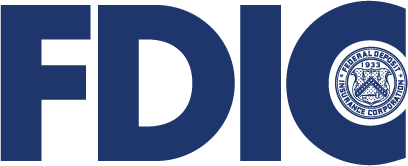Home insurance provides necessary protection for your home and assets, but it’s only effective if it offers coverage for all your property and assets. When it comes to insuring your home and property, you must be aware that typical homeowner’s insurance does not offer coverage for all types of damages. For instance, insurance plans do not cover damages caused by flooding and other natural disasters, which means that you need to protect yourself with additional insurance plans or add-ons to your policy.
Investing in a comprehensive insurance plan provides peace of mind and real protection for your assets. Check out some of our team’s tips for making sure you’re covered appropriately for what is often one of your most valuable financial assets, your home.
Understand Typical Coverage
While homeowners’ insurance is typically not legally required, many mortgage lenders require a minimum homeowners insurance plan. Your current insurance plan may not cover all the property associated with your home or protect your property against all potential conditions. As you assess your current insurance coverage, it’s necessary that you understand common coverage options. Typically, homeowners’ insurance offers six types of coverage:
- Dwelling Coverage: Coverage on your home’s physical structure, based on costs to rebuild today. Homeowner’s often find that they are under-insured here, especially with the consistent rise in costs of supplies.
- Other Structures: Insurance that makes sure your pool, tool shed, fence, or detached garage are covered.
- Personal Property: Coverage on personal items in your home, like furniture or some electronics.
- Loss of Use: Coverage that offers assistance with expenses like hotel bills if your home becomes uninhabitable due to a specific natural disaster, like a hurricane.
- Personal Liability: Coverage for legal defense and court ordered judgments relating to damage (bodily or property) that others incur due to your actions. It is great to consider whether your coverage is enough to protect your assets, or what could be taken from you in a lawsuit. Often, homeowners purchase an umbrella liability insurance policy.
- Medical Payments: Coverage that assists with medicals bills (under a certain amount) that relate to accidents that others might incur at your property.
Typical coverage may appear comprehensive at first, since generic homeowners’ insurance offers protection against a variety of incidents. However, this insurance lacks coverage for notable incidents, like flooding.
Consider Your Location
As you consider the lack of coverage for natural disasters in most insurance plans, you must consider your home’s location. For instance, if you live in high-risk flood areas or a state that’s often directly impacted by hurricanes, such as the Mississippi or Alabama Gulf Coast, it is a great idea to invest in flood insurance.
Though floods are one of the most common natural disasters, home insurance does not cover damages incurred from flooding or surface water. Flooding can have disastrous consequences on your property, and flood insurance can shield you from losing your assets.
As you consider flood insurance, consult the FEMA Flood Map to get an idea of the likelihood of flooding in your area. Still, keep in mind that flooding can occur rapidly and unexpectedly, sometimes even if you are not in a high-risk area.
Think About Your Employment
Working remotely is more prevalent than ever nowadays. Remote work offers employees more flexibility and convenience than on-site jobs, but it does require you to think more carefully about your home insurance coverage.
While home insurance does offer protection for property in the home, there are limitations. Typical home insurance will not reimburse you for the full value of high value items, like wedding rings or significantly expensive technology equipment. If you are using company provided equipment, then this will likely be covered within your employer’s insurance. However, if you are using your own technology–like laptops, printers, tablets, etc.– to complete your work, the allotted property coverage may be lower than necessary. This means that you might need to consider expanding your home insurance coverage to ensure that your ability to work from home will not be interrupted by unexpected incidents.
Consult an Expert
Homeowners insurance can be confusing to purchase, so consulting an expert can enable you to invest in the best protection for your home and assets. In the meantime, our team might suggest adding savings goals to your financial planning. Reach out to your local bank team to see which savings account will work best for you!



